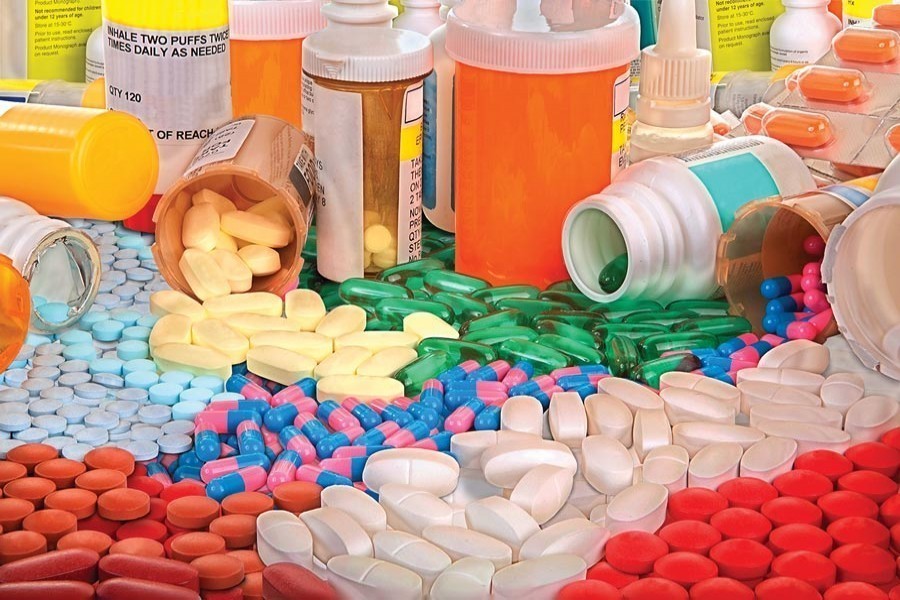Spurious drugs have reportedly started capturing an increasing chare in the pharmaceutical market. There are reasons to believe that in the pandemic time, due to increasing demand for some essential medicines all over the country in an attempt to stay safe from the virus and virus-related ailments, spurious drug makers have made their aim plain enough to cash in on people's miseries. Medicines of Covid-19 and gastroenteric complications are being counterfeited and marketed posing serious threats to public health and lives.
While spurious drugs are already a cause of worry for the country's healthcare sector, the latest shocker, too upsetting to repose any confidence in the role of the drug regulation authorities is their apparent incapacity to rein in the reckless misdeeds. A news report quoting Director General Drug Administration (DGDA) officials says it is not possible for them (DGDA) with limited resources and manpower to monitor the entire medicine market of the country comprising more than one hundred fifty thousand pharmacies across the country. According to experts and officials of known pharmaceutical brands, lack of monitoring of production and marketing activities are mainly to blame for the high prevalence of counterfeit medicines. According to the detective branch of DMP (Dhaka Metropolitan Police) which had recently conducted some raids and filed cases against fake drug dealers and makers, the main hub of hoarding and trading fake medicines is the Mitford medicine market, the largest in the country. Besides, fake medicines, date expired local and imported medicines are a cause of great worry. According to the finding of the Directorate of National Consumer Rights Protection some time ago, about 93 per cent pharmacies in Dhaka were found to keep date-expired drugs for sale with freshly printed labels/stickers.
Anti-counterfeit raids by a number of state agencies have not at all helped curb the ominous trend. Fining and sealing the stores are barely the most effective moves as these are periodic and infrequent. What indeed is most distressing is that if the drug stores including some major ones in the capital itself indulge in selling date-expired drugs and medicines, it must not be seen as a stray phenomenon, but a pervasive one all over the country. It may not appear too unbecoming to think that the business racket that controls domestic medicine supplies has dug its roots deep enough to prevail strongly on the country's drug market-- not bothered by the actions of the regulatory bodies including the DGDA.
The worst threat that these spurious and date-expired drugs pose is that these are mostly meant for common ailments; and consumers, with or without physician's prescription, find it convenient to buy them -- relatively priced lower than that of the genuine brands. The big issue that must not be ignored is how these counterfeit products get a sizeable market share in the competitive drug market if these are not methodically promoted. Without the existence of a probable nexus, this cannot continue for long. This is one important area that the authorities may consider crucial to curbing the menace.


